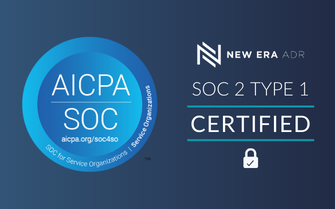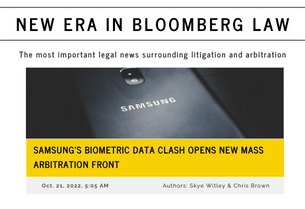
Title IX Coordinators use a highly prescriptive intake process. It’s formulaic, fact-based, and to the point.
You welcome the reporting person into your office. You cover all case elements: informal and formal options, equal rights of the complainant and respondent, presumption of innocence, supportive measures, the investigation and directly related evidence periods, and a live hearing with cross examination.
You’ve shared this information so often that you might tune yourself out as you recite it. After all, you know it by heart.
You also know that the most urgent piece of a Title IX Coordinator’ role is maintaining federal compliance: Pay attention to the ever-changing law, draft it into college policy, and then follow that policy perfectly. Related Article: Proposed Title IX Changes from the Biden Administration and the Department of Education
Without compliance, your Title IX process is unsteady at best. An OCR violation, sabotaging media attention, or a massive lawsuit can immobilize an institution.
It’s a paralyzing thought.
So it’s no wonder that in all this policy, painful level of detail, and air-tight procedure, Coordinators hyper-fixate on compliance and can accidentally bury their empathy.
Policies are heavily legal and indigestible because in the name of compliance, they have to be. And to anyone on the other side of that intake, the experience can feel…cold.
And here’s the thing.
The person in your office experiencing a meeting at any point in the process-investigation, evidence review, or live hearing- likely needs empathy and compassion more than anything else. Yes, they must understand their rights under Title IX, but that’s not really why they’re here…in your office, nervous, and unable to meet your eyes.
They’re seeking justice and making sense of their experience. Maybe they wanted to report for years but only found the courage right now. Perhaps they’ve told their story before but weren’t believed, or maybe they never said it out loud until today. They might think that through justice in a college Title IX process, they may finally heal.
On the other side, if the person finds themselves responding to an alleged policy violation they want to know two things: What are they being accused of? And what’s going to happen to them? Will they be able to remain a student here? Keep their job? Will other people find out? What will their parents or friends say?
And here, in these moments, care and compassion are pivotal to a fair Title IX process.
Because it’s not a matter of IF parties’ mental and emotional health will crumble, but when…and to what extent.
I’ve had respondents receive a formal complaint and immediately say “I’m not worried about this” only to fall apart later in the semester. They stop going to class, are unable to leave their room, and suffer daily panic attacks. They routinely ask how much longer the process will drag on, and the answer is never short enough. Some students ultimately leave campus, taking several “incompletes” or failing grades. And then (perhaps the most crushing part), the Title IX experience becomes their college experience, and its turmoil masks the institution they once loved.
A complainant will often tell me that their path to healing is through justice. “If only this person could get kicked off campus, if I never have to see them again, if a board finds them responsible, THEN I can move on.”
And maybe they can. But an all-consuming process usually proves otherwise.
And all Coordinators know that in the end, no matter what, no one “wins” in a Title IX case.
It’s a bitter and grueling process…mainly in the name of compliance.
The good news is that despite the dark nature of the work, you can always conduct a grievance process with kindness, empathy, and compassion.
So…How does a Title IX Coordinator act compliantly and without bias..while emphasizing compassion?
Remember what brought the complainant or respondent to your office…and how heavily it sits.
A complainant knows that they want justice but might be unclear on what that justice looks like. Is it accountability through a finding of responsibility? Is it that they never see their alleged attacker again? Is it through ongoing therapy and victim advocacy?
At this moment, that complainant likely can’t think of much else beyond their path to healing. A respondent is fearing what comes next. Neither party has read your complicated 80-page policy and probably can’t absorb it right now anyway.
In these meetings I make sure to say a few things:
“I know this is a lot of information. It’s okay if you don’t remember it.”
“You might walk out of my office and forget everything we talked about, and that’s okay. I’ll follow up in writing and meet with you as much as you need to answer all of your questions.”
“I’m sorry that you’re going through this.”
In order to remain unbiased, it’s important not to say that you’re sorry this “happened” as that assumes responsibility. Remember that everyone is presumed innocent until an outcome says otherwise. Remind the person that you are a neutral facilitator.
“How else can I be helpful to you?”
Emphasize supportive measures available throughout the entire process-whether in a formal, informal, or no “process” at all.
Bring in an advocate or advisor whenever possible.
Since the Title IX Coordinator is unbiased, invite an on-call advocate to the meeting if the party agrees or encourage the party to bring their own advisor. A non-neutral person can make the party feel validated, supported, and less intimidated and overwhelmed. Having a second set of “ears” in the meeting will also help the party digest the information and guide them through next steps.
Outsource your work, and refer out when possible.
Referring parties to other resources is hugely helpful in a Title IX process. Develop strong relationships with your college counseling center, campus safety, and victim advocates who can help support people involved in cases. The more resources a party can easily access, the better.
Hire out investigators and mediators if your budget allows. It’s much harder for a complainant or respondent to see you as an empathetic college official when you are conducting long, invasive investigation interviews.
Check in frequently, and allow for flexibility.
Related Article: 50 Years of Title IX: Where Do We Go From Here?
Ask parties what they need to be successful, and if you can grant their request, do it.
Some examples of compliant flexibility include allowing deadline extensions (assuming it doesn’t threaten the right to a timely process), not scheduling interviews or deadlines over breaks or finals, and regularly reviewing and updating supportive measures.
Create a warm, welcoming environment.
I am not offended when a party doesn’t want to chit chat in my office. I get it. They look at me, my space, and they can’t help but think of their case, what they’ve endured, and what’s to come. That’s why we’re all here, after all.
But, if the temperature seems right, I ask how they’re doing. How are their classes? Do they have exciting plans for Fall Break? How is their mental and emotional health? What are they struggling with right now? Do they have a solid support circle?
Related Article: Title IX Resource Guide
I also check in on supportive measures. Do they need to be updated? Is the no-contact order still effective? Do they need help getting a counseling appointment?
Just as importantly, make sure to show this same warmth with the respondent.
And if someone prefers to forgo the chat and get out of my office as fast as humanly possible, that’s okay, too.
Remember that parties are usually upset at the situation, not at you personally.
It’s no secret that the Title IX Coordinator is not the most beloved administrator on campus. You have some of the toughest conversations, deliver the most visceral news, and oversee the most defining period of a party’s experience with the institution.
And people generally dislike you for it…at least a little. They blame you because, through their hurt, it feels better to be able to blame someone. And that’s okay. Assume that responsibility, and do your best to leave it at work.
And remember that at the end of the day, no one wants to report to a cold, shaming, or judgemental Title IX Coordinator. And if no one reports, it’s safe to say we aren’t making much impact…at least not as much as we could be.
Even within the bounds of compliance, we can see people involved in Title IX cases as people first. Not boxes to check, not laws to follow, but people experiencing trauma.
And as mental health becomes a growing crisis, empathy and compassion is the only answer.

Julianne Watterson is a Title IX and Prevention Coordinator at Gustavus Adolphus College in Minnesota. In her free time she loves copy and content writing, fostering rescue dogs, and visiting as many national parks as possible.




